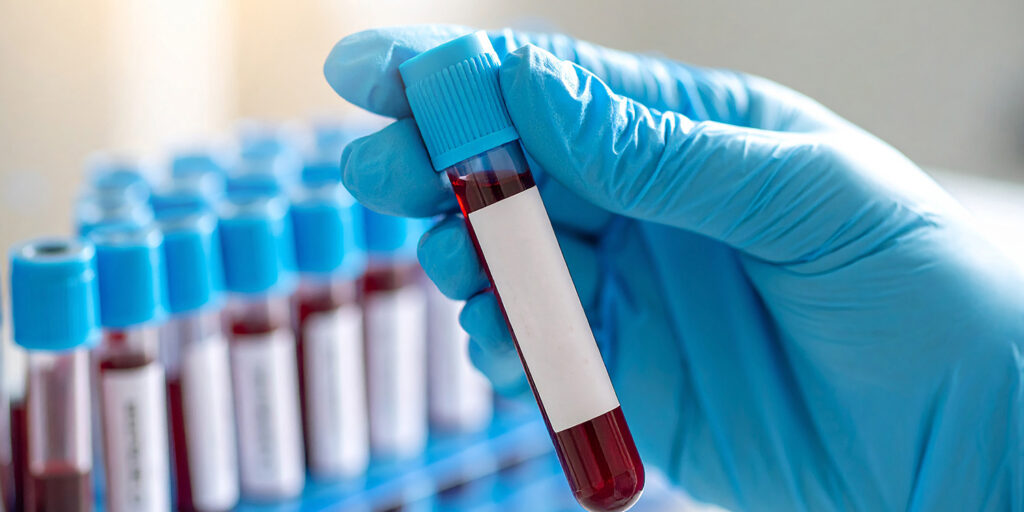The Importance of Regular Blood Tests in Monitoring Health

Regular blood tests play a key role in monitoring overall health and detecting problems before they progress. Globally, routine medical tests are considered the foundation of preventive healthcare, and are widely used to identify numerous conditions such as anaemia, thyroid problems, and diabetes at an early stage. In India, where lifestyle-related disorders such as obesity and heart disease are on the rise, the importance of blood tests has never been greater. A complete blood analysis not only provides clarity about existing concerns but also guides timely treatment and lifestyle changes. In this article, we will explore why routine blood tests matter, the common conditions they help detect, and how they fit into preventive health check-ups.
Table of Contents
ToggleWhy Regular Blood Tests Matter
Routine medical tests are more than just numbers on a report; they provide a window into how the body is functioning. Regular blood tests play a vital role in:
- Detecting hidden health issues early: Many conditions such as anaemia, thyroid disorders, and diabetes, develop silently without obvious symptoms. Blood tests help in identifying them at an early stage.
- Monitoring chronic conditions: People with long-term illnesses including diabetes, high cholesterol, and kidney disease require frequent blood tests to track progress and adjust treatment.
- Guiding lifestyle and dietary changes: Results from a complete blood analysis can reveal vitamin deficiencies, high lipid levels, or other imbalances, helping doctors recommend healthier diets, exercise, or weight management for conditions such as obesity.
Health Conditions and Recommended Blood Tests
Different blood tests are recommended to detect or monitor specific health conditions. The table below highlights some of the most important ones:
| Health Condition | Recommended Blood Test(s) | What It Shows |
| Diabetes | Fasting Blood Sugar, HbA1c | Measures glucose levels and long-term sugar control |
| Cardiovascular Disease | Lipid Profile | Detects cholesterol and triglyceride levels linked to heart disease |
| Thyroid Disorders | TSH, T3, T4 | Assesses thyroid gland activity and hormone balance |
| Liver Problems | Liver Function Test (LFT) | Monitors enzymes, proteins, and bilirubin for liver health |
| Kidney Problems | Kidney Function Test (KFT) | Evaluates creatinine, urea, and overall kidney performance |
| Vitamin Deficiencies | Vitamin D and B12 Tests | Identifies nutritional gaps that affect energy, bone, and nerve health |
| Anaemia and Blood Disorders | Complete Blood Count (CBC) | Measures red blood cells, white blood cells, and platelet count |
How Often Should Blood Tests Be Done?
The recommended frequency depends on three factors – overall health status, presence of chronic conditions, and family history. Broadly, schedules fall into these groups:
- Healthy adults: An annual health check-up with basic tests such as CBC, lipid profile, and fasting blood sugar is recommended.
- People with chronic conditions: Those with diabetes, thyroid disorders, or kidney and liver problems may require testing every 3–6 months.
- Strong family history: Individuals with a family history of heart disease, diabetes, or obesity may need more frequent monitoring as advised by the doctor.
These timelines are general guides; the treating clinician may modify the schedule based on prior results and individual risk.
Benefits of Routine Blood Tests
Regular blood tests are one of the most effective tools for preventive health check-ups. They offer several advantages that go beyond early diagnosis, such as:
- Early diagnosis and timely treatment: Detecting problems such as diabetes, anaemia, or thyroid imbalances before symptoms appear allows for quick medical intervention.
- Personalised health monitoring: Results from a complete blood analysis help track how lifestyle changes, medications, or treatments are working.
- Reduced long-term healthcare costs: Preventing complications through routine medical tests is far more affordable than treating advanced disease.
- Peace of mind: Knowing that blood sugar, cholesterol, and other key parameters are within normal ranges provides reassurance and encourages healthy habits.
By offering both clarity and prevention, routine blood tests play an essential role in maintaining overall health.
Blood Test Process: What to Expect
Getting a blood test is a simple and safe procedure, but knowing what to expect can ease anxiety and ensure accurate results.
- Fasting vs non-fasting tests: Some tests such as fasting blood sugar or lipid profile require fasting for 8–12 hours, while others like CBC or thyroid tests do not.
- Sample collection: A small amount of blood is drawn from a vein in the arm using a sterile needle. The process usually takes just a few minutes.
- Reporting timeline: Most routine medical tests, including complete blood count (CBC) and blood sugar, are reported within the same day, while specialised tests may take longer.
Safety and Accuracy of Blood Tests
Blood tests are considered one of the safest and most reliable diagnostic methods. They have:
- Minimal risks: Apart from slight bruising or discomfort at the puncture site, there are usually no side effects.
- High accuracy: Modern laboratories use advanced equipment to ensure precise results for tests such as CBC, lipid profile, and thyroid function.
- Reliable lab testing: Getting tests done at NABL-accredited labs ensures quality standards are met, reducing the chance of errors.
Why Choose Graphic Era Hospital for Blood Tests in Dehradun
At Graphic Era Hospital, we understand that timely and accurate blood test results are the foundation of good healthcare. That is why we ensure every patient receives care that is reliable, safe, and patient-focused. We provide:
- Skilled Technicians and Safe Sample Collection: At Graphic Era Hospital, trained phlebotomists and lab technicians ensure that blood samples are collected safely, comfortably, and with strict hygiene standards. This minimises discomfort for patients and maintains the quality of the sample for accurate testing.
- Experienced Pathologists: Once the samples are processed, our pathologists carefully analyse and interpret the results. Their expertise ensures precise reporting for conditions such as diabetes, anaemia, thyroid disorders, liver and kidney problems, and vitamin deficiencies, enabling doctors to make the right treatment decisions.
- Advanced Laboratory Facilities: Equipped with modern technology, we offer a complete range of tests including CBC, LFT, KFT, thyroid function, and vitamin level assessments.
- Comprehensive Preventive Check-ups: From routine medical tests to full body check-ups, we provide health screening packages tailored to individual needs.
- Patient-Centred Approach: With same-day reporting for most tests and clear result explanations, we make the process convenient and stress-free.
If you are looking for accurate and reliable blood tests in Dehradun, Graphic Era Hospital offers comprehensive diagnostic services and preventive health check-up packages. To book a blood test or full body check-up, call 1800-889-7351 today.
Frequently Asked Questions
Why are regular blood tests important for health?
They help detect hidden problems early, monitor chronic conditions such as diabetes or thyroid disorders, and guide lifestyle changes for better long-term health.
What diseases can be detected with a blood test?
Common conditions include anaemia, diabetes, thyroid disorders, liver and kidney problems, vitamin deficiencies, and cardiovascular risks.
How often should I get a routine blood test?
Healthy adults should get an annual health check-up. People with chronic conditions or a family history of disease may need more frequent tests.
Do I need to fast before a blood test?
Some tests such as fasting blood sugar and lipid profile require 8–12 hours of fasting, while others like CBC and thyroid tests do not.
Are blood tests painful or risky?
Blood tests are very safe. Only mild discomfort or slight bruising at the needle site may occur.
Can blood tests detect vitamin deficiencies?
Yes, tests for Vitamin D and Vitamin B12 can detect deficiencies that may cause fatigue, bone weakness, or nerve problems.
Where can I get a preventive health check-up in Dehradun?
Graphic Era Hospital offers preventive health check-up packages and routine medical tests, including complete blood analysis and full body check-ups.
How long does it take to get blood test results?
Most routine tests such as CBC and blood sugar are available on the same day, while specialised tests may take longer.
By Specialities
- Bariatric Surgery
- Cancer Care
- Cardiology
- Dental
- Dermatology
- Diabetes & Endocrinology
- Endocrinology and Diabetes
- ENT (Ear Nose Throat)
- Eye Care
- Gastroenterology
- Haematology
- Health Care
- Health Tips
- Hematology
- Hepatology
- Internal Medicine
- Mental Health and Behavioural Sciences
- Metabolic
- Neonatology
- Nephrology
- Neurology
- Nutrition & Dietetics
- Obstetrics & Gynaecology
- Oncology
- Ophthalmology
- Orthopaedics
- Paediatric
- Physiotherapy & Rehabilitation
- Plastic and Reconstructive Surgery
- Psychology
- Pulmonology
- Rheumatology
- Spine
- Urology
Recent Posts
- Cervical Cancer Prevention Week 2026: A Global Call to Prioritise Cervical Health
- World Leprosy Day 2026: Why Awareness is Still Important Today
- What is a Stroke: Causes, Symptoms & Treatment
- Glaucoma Awareness Month 2026 : Raising Awareness to Prioritise Eye Health
- Understanding Menopause: Stages, Symptoms, and Management
Need expert medical advice?
Share your details and our healthcare specialists will reach out to assist you.
By proceeding, you acknowledge and agree to our Privacy Policy, Terms of Use, and Disclaimer.



















